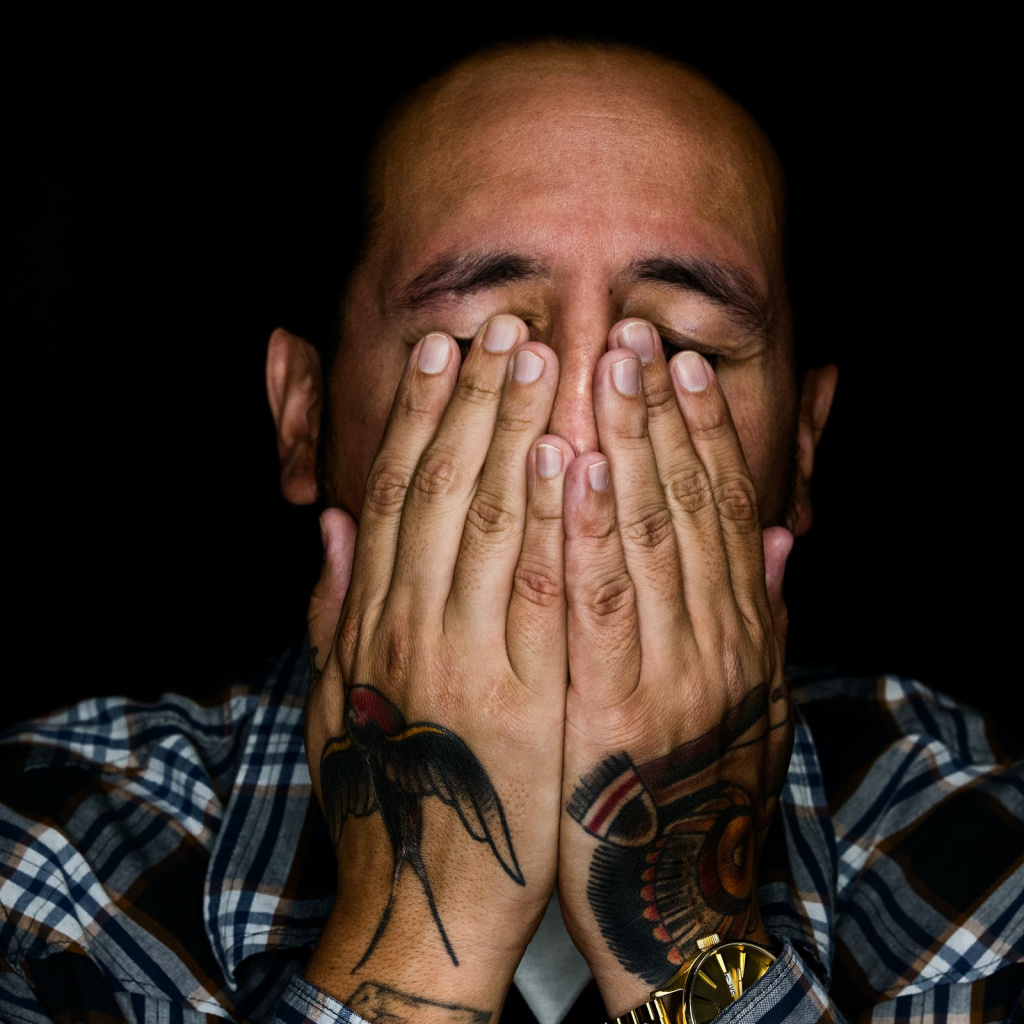I recently participated in a collaborative project to help parents whose children are navigating the rapidly changing digital world understand what the research says about cyberbullying. This deeper dive left me astounded to hear what many young people are having to face.
A Pew study five years ago found a majority (59%) of teens in the U.S. had experienced cyberbullying in some form. Reasons for bullying vary widely according to a 2020 Annual Bullying Survey—targeting aspects of appearance and mannerisms to clothing and disabilities. If you study cyberbullying messages, you’ll see a pattern of words like “pathetic,” “weak,” “fat,” and “worthless” weaponized repeatedly. Comments aim especially at specific parts of the body or someone’s appearance … basically, anything that makes the other person feel worse about themselves. Hundreds of girls surveyed in 2016 reported that online sexual abuse and harassment were becoming a normal part of their everyday interactions—with upwards of 80% of college-aged young women in other surveys reporting sexual harassment.
All this is a sad reminder of what so many young people are facing. As many of us already know well from years of public schooling, it’s especially common for bullies (online or off) to target those perceived as being at the extremes of some characteristic. For example,
- 20% of teenage victims reported they were targeted for their “high grades,” while 15% said they were targeted for their “low grades.”
- 9% of victims said they were targeted for their “low household income” and 8% for their “high household income.”
- Children who are overweight or underweight, who are less popular or don’t get along well with others, who are seen as annoying by their peers, or who seem depressed or anxious are all at greater risk of being targeted by a bully.
- Sadly, 5% of cyberbullying victims say they were targeted for their stated “gender identity” and 10% for their “sexuality”—with 8% of teens saying they were targeted for their “religion” and 9% for their “race.”
Clearly, this is an awful trend that has well-known and tragic effects on teen mental health. But thankfully, there is some really wonderful work being done about it, especially for young people (see this research center, this app for parents, and this resource list).
But that’s usually where we leave it—as something that teens are facing in our unruly digitized society today. That perception changes immediately, though, once you see it happen to an adult that you love.
Friends being targeted. It started for me after witnessing several friends and close colleagues getting targeted in various ways for their efforts to raise awareness about the potential harms of modern digital pornography. I had no idea this type of repeated online aggression against thoughtful adults was even a thing—and for the first year or so, I mostly stood back a little gobsmacked that this was even happening.
After a while, my research instincts kicked in, and I started gathering examples of the attacks that were coming their way. For those unfamiliar with this sordid genre, you might be surprised to find how wide and diverse the rhetorical assaults can be. Moving from the most common to the most creative, these include:
- Posting rumors, lies, embarrassing information, or threats on social media generally or more specifically to specific individuals who may know or be aware of the person being targeted.
- “Outing” sensitive information that can potentially be used to harass a victim—including “doxing” someone by publishing private information online with malicious intent.
- “Trolling” is a deliberate act of provoking an individual through bad language or insults on social media or online forums—with an aim of making the other person angry enough to act in a similar manner.
- In our age of heightened sensitivity, “warning wars” have also become common. This is when services for reporting inappropriate content get taken advantage of by falsely reporting a victim to get them in trouble or kicked off a platform.
- “Frapping” involves impersonation by using a screen name similar to the victim’s or creating a new account pretending to be the victim. The bully then carries out inappropriate behavior to make the other person look bad. This can ruin someone’s reputation, especially because it’s hard to deny or correct.
These kinds of things, of course, happen to many people these days across many issues. From choosing to support a socio-political position far out of favor to holding a view on the wrong side of modern medical orthodoxy, you can prepare to be blasted online (and worse). It’s a harsh digital landscape we’re inhabiting, far from the utopian of free association and expression it was originally imagined to be. Since penning this, people on our own team have shared with me stories of vicious trolling they have endured.
Over recent years, all these forms of cyberbullying have happened to my colleagues in the pornography addiction field, not just a few times—but repeatedly and relentlessly. The longer it happened, it became increasingly horrifying to watch from the sidelines. I was so appalled at what I was seeing that I decided to begin summarizing patterns in what I was observing.
The personal toll I witnessed was real. I heard colleagues report sleepless nights and worsening symptoms of trauma, serious depression, anxiety, and even physical illness prompted by the relentless barrage. Describing the personal impact, one of them told me that being targeted was “nightmarish”—as well as surprisingly isolating since so many people you love end up confused or cowering, worried about being attacked themselves. It can all be incredibly stressful and “mess with your head.”
This also takes a toll on relationships—eroding time with family, distracting individuals from the tender care relationships need, and distancing them from needed connection. Many chose to seek outside support like therapy or peer support groups to deal with their chronic grief.
While most of them tried to weather past the challenges, others decided to confront it directly through cease and desist letters or even defamation lawsuits.
As my own small part in trying to push back on this campaign of attrition, I eventually decided to publish my report anonymously—not directly and formally, but instead embedded in another essay I had written. I opted to proceed this way so as to stay out of the firing line myself as long as possible. I hosted the review on my own Google Drive account—aware that my anonymity there was limited and only likely to buy me a little time.
This experience opened my eyes to the reality of adult-on-adult cyberbullying. But it wasn’t until the target came to me that I learned on a more personal level how awful it could be.
An eye-opening couple of months. Like most writers today, I’ve faced plenty of vitriol in article comments. And every once in awhile, I’ve received harassing texts and mean-spirited emails. But what has happened lately has been of a whole different caliber.
Earlier this year, I decided to write a review article about the life work of my friend Gary Wilson on the anniversary of his death. It was published in early August in the Deseret News, entitled “The Atheist Who Warned the World About Porn Addiction.” Over the week that followed, I was targeted on Twitter around 90+ times in a variety of different places—including every place I write and on the social media pages of various Public Square authors. In addition to inserting incendiary commentary anytime my name comes up on social media, this person has also reached out to venues where I was speaking and other places that have supported my work—trying to discredit and de-platform me through various slanders. Simultaneously, she has reported me for egregious offenses on LinkedIn and other social media platforms (which, although baseless, require me to go through various appeals to defend myself).
I am choosing not to name the individual behind these attacks—or provide any other identifying information—because my purpose here is to provide appropriate context to my own friends and readers, nothing more. The accusations made about me were wide and varied—including being homophobic and bigoted[ref num=”1″], being one of those dangerous “anti-vaccine[ref num=”2″]” persons, and even claiming that I am “in the middle of groups that appear to be extremely violent.” (This person presents herself as an expert in various things—including brain science and “online extremism.”) There was an insistence that great harm was happening within groups like I’ve been a part of that help people find freedom from pornography, including what she claimed were serious threats on her own life.
All of this is plain nonsense—based on subtle deceptions woven together with outright fabrications and a few grains of truth. Those who have witnessed this for almost a decade know all this well. But here’s the real point: that doesn’t really matter—because the nonsense often works.
“If you tell a lie big enough and keep repeating it, people will eventually come to believe it.” ~ Joseph Goebbels
The power of claiming victimhood. This is especially true when a lie centers on your own status as a victim. New research in the Journal of Personality and Social Psychology reports “converging evidence that the virtuous victimhood signal is an effective mechanism for persuading others … in a way that benefits the signaler.” And in a fascinating piece by New York Times journalist Thomas Edsall, he quotes Jonathan Rauch, a senior fellow at Brookings, as detailing how activists “have figured out that they can have disproportionate influence by claiming to be physically endangered and psychologically traumatized” by the work or public commentary of others they disagree with. In the same article, Randall Kennedy, a law professor at Harvard summarizes how these activists have learned to “deploy skillfully the language of ‘hurt’” to advance their aims.
Dr. Kennedy goes on to encourage leaders to “become much more skeptical and tough-minded when encountering the language of ‘hurt’”—so as to avoid incentivizing “those who deploy the specters of bigotry, privilege, and trauma to further diminish vital academic, intellectual and aesthetic freedoms.”
In my judgment, that’s essentially what’s happening here. In the case of this individual, the primary line of attack has ironically been claiming to be a victim of the very people being relentlessly attacked.
More specifically, this individual portrays herself as “hated,” presumably because her research is bravely uncovering varied “harms” caused by those helping others find freedom from pornography addiction.
The accountability document. In my case, this individual has repeatedly mentioned a “27-page, single-spaced personal attack” against her that she has variously called “abusive,” “threatening,” and “filled with defamation.”
It is none of those things. Rather, it’s the research summary I mentioned earlier, which I compiled over the years as I watched the aggression from the sidelines. Although it’s now outdated by a few years, everything in it, to the best of my knowledge, is true.
Even so, I haven’t yet circulated it widely. And I am choosing not to share it again here precisely because that document has been portrayed as some kind of a weapon.
It’s not. It’s an act of accountability. And I stand behind all of it. I mention it here in case you’ve heard these accusations. If, for whatever reason, you want to review it yourself, I’d be happy to share it privately.
But let me reiterate something very clearly: I am ready and willing to not only publish an updated version under my name but also make sure it gets in front of the managing editors of every major news media organization and relevant academic journal if I am forced to do so.
As a full-time writer working 60+ hours a week, there is so much more I could and will say about this if I’m pushed far enough. But for now, I’m writing this today simply for our own readers at Public Square. I want to at least make sure my friends and colleagues know enough context about what’s happening—so you can say “oh look, there’s Jacob’s special cyberbully friend!”
I’ve covered my bases to the best of my ability, sharing further background with all the people who employ me. But I don’t know how many others have seen or received these unsettling messages—let alone my critics, who would presumably love to hear some “dirt” confirming their own bias about me.
If you want to help, get in the habit of asking the targets of such smears for their side of the story rather than casually retweeting shocking claims of victimhood. To his credit, one of my more public critics was contacted by this same individual. When I spoke with him, though, rather than just running with something that fit his feelings towards me, he told me, “I looked a little into [her] accusations, and it looks like she’s been embroiled in controversy and rancor with a lot of different people.”
Anyone willing to dig deeper for the full truth—especially in our world today—has my respect.
The broader landscape. As a final note, please know this isn’t happening randomly. So much of the cyberbullying you hear about among teens can feel juvenile, random, and even silly—the social equivalent of kids getting too rowdy (even if the reality for young people is also often more sinister). But among adults, there is undeniably something far more calculated and strategic going on.
In our hyperconnected, digital world, I’ve been learning to what extent such conduct is often an attempt to silence certain people who are perceived as threats to an ideology or lucrative business. This often works because most victims just don’t want to deal with the attacks anymore. And defamation suits are prohibitively expensive and grueling. If you somehow are able to make your way through the legal process, nothing stops the defamer from declaring bankruptcy to obstruct your collecting damages. It’s certainly easier to let the cyberbully silence you or perhaps stay away from activity that could potentially lead to further targeting of such online aggression.
To be clear, I’ve only had a nasty taste of what cyberbullying is all about. By contrast, some of my friends have experienced years of it. Broader theology, economics, and sociology aside, I still don’t really understand on a deeper level why this ugliness has to take place. None of these friends were seeking to be smeared. It came to them. One of them described it as contracting an incurable infection. Even if they completely ignore it, the attacks just keep coming. Over the years, dozens of individuals I respect have been targeted. So I’m in good company.
In my view, every one of them is heroic for not only continuing to share the truth about pornography—but for enduring the withering opposition and personal attacks that have ensued.
Despite all this, I remain optimistic. Why? Because I know who wins in the end.
And what will win: Truth. The full truth.
That will be a great day.
Until then, I’m proud to stand shoulder to shoulder with others doing what they can to raise awareness about reality in our delusion-loving society today—however hated and despised that may make them.
I seem to recall someone warning long ago that truth-tellers would be hated … alongside a plea for us nonetheless to pray for even those doing the hating.
That’s what I will keep doing—praying for her and anyone else caught up in the snares of the Sexual Industrial Complex.
People are hungry for the truth. And it will always be sweet to share it—whatever the cost.
That is the truth.
Notes:
[footnote num=”1″]It’s true I have written a great deal over the years about identity and sexuality—initially, as an attempt to facilitate dialogue between religious conservatives and the gay community, and more recently, as an attempt to push back on the corrosive impact of popular sexuality ideology on faith.[/footnote]
[footnote num=”2″]It’s also true that like many millions of others in this nation, I’ve had questions about the prevailing response to COVID-19. But it’s not true—and a serious misrepresentation of my public work and writing—to suggest I’ve been a part of directly undermining and fighting the prevailing public health response. That never felt right to me, and I consistently felt like my focus should be pandemic dialogue and peace-making. And a closer review of my writing in the Deseret News, Public Square Magazine, Meridian Magazine, and Millennial Star will confirm that—demonstrating that virtually everything I’ve written these last two years on the subject centers around either peace-making between various perspectives on health and healing and preserving space for people to think for themselves and make their own choices, hardly radical notions.[/footnote]


















